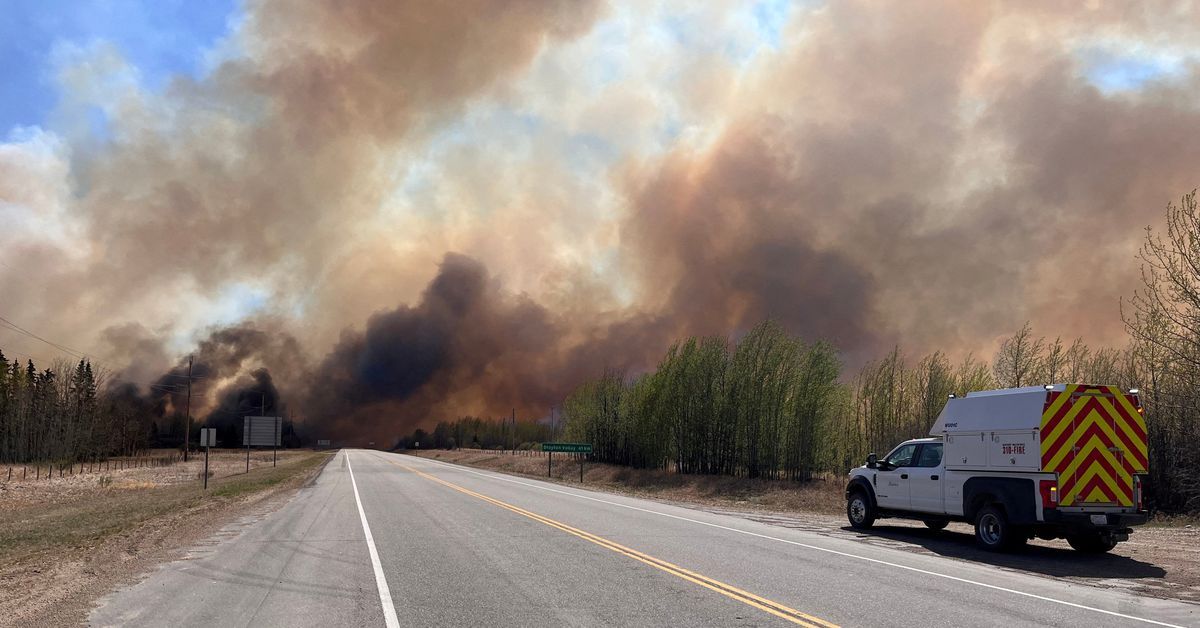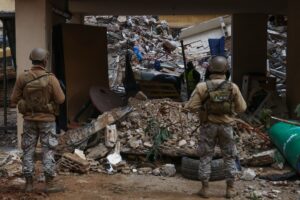
Tinder-dry weather and shifting winds in Western Canada on Tuesday elevated the risk of spreading wildfires in the Canadian oil-producing province of Alberta where thousands have already been forced from their homes.
Some 90 wildfires are active in Alberta, with 23 out of control, according to the provincial government. At one point the fires pushed more than 30,000 people out of their homes while oil and gas producers shut in at least 319,000 barrels of oil equivalent per day, or 3.7% of national production.
Evacuation orders and alerts have also been sounded in the neighboring province of British Columbia, where some 60 wildfires are active.
“The arrival of sustained winds from the north has resulted in aggressive fire behavior on all wildfires within the North Peace Region,” the BC Wildfire Service said late on Monday.
Some companies are beginning to bring back production with temperatures expected to cool in the day ahead.
Late on Monday, natural gas producer Kiwetinohk Energy said approximately two-thirds of its Placid production has been restored.
Still, the wildfires are taking a toll on residents’ lives.
Judy Levesque, 50, stood outside in the central Alberta town of Drayton Valley on the night of May 4 as ash rained down.
“(I thought), ‘Oh, this is getting a little close for comfort,” she said by phone.
That night residents of Drayton Valley, 133 kms (83 miles) southwest of provincial capital Edmonton, received evacuation orders. Levesque, her husband, mother and three dogs piled into their car and crawled along a crammed highway to her in-laws’ place in Leduc, south of Edmonton.
Days later, someone showed her a picture of what had been her home. She recognized it from their truck parked out front.
“The only thing standing is the chimney,” she said.
A cold front bringing gusty northwest wind, but little rain, was likely on Tuesday, Environment Canada meteorologist Sara Hoffman said.
The change in wind direction can pose a problem for firefighters as the path of the fires changes suddenly, said Christie Tucker, spokesperson for the Alberta Wildfire agency.
The Canadian military and firefighters from across Canada and the United States are helping fight the blazes.
Benchmark Canadian heavy crude prices have risen to their highest levels in months on concerns about the wildfires.
Levesque and her husband plan to rebuild but the loss of irreplaceable items is tugging at her. Her grandmother’s watch, a necklace from her late sister.
“We will build better,” she said, fighting back tears. “We planned to renovate so now we get to do it quicker.
“That’s the attitude we have to have because it’s too sad the other way.”







